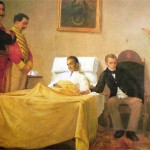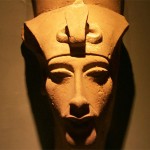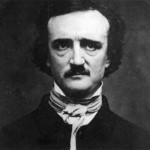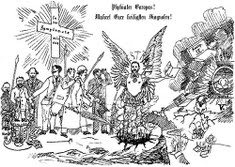 By
By
Last week, Charles Darwin became the latest “patient” at an annual conference that aims to unravel the medical mysteries of long-dead historical figures. A leading gastroenterologist diagnosed three conditions that may have plagued the English naturalist throughout his life and contributed to his death at 73. Past conferences have plumbed the lives and deaths of prominent individuals ranging from Christopher Columbus and Florence Nightingale to Alexander the Great and Claudius.
Slideshow: Unraveling History’s Medical Mysteries
-
 Charles Darwin (1809-1882)
Charles Darwin (1809-1882)Symptoms: Decades of suffering from chronic vomiting, abdominal distress, eczema, boils, weakness, vertigo, twitching and joint pain. He died at 73 of heart failure. Diagnosis: Cyclic vomiting syndrome, Chagas disease and Helicobacter pylori.
la
-
Simón Bolívar (1783-1830)
Symptoms: Excellent health until age 29, when he suffered from the first in a series of febrile illnesses.
 ht loss, exhaustion, a persistent cough and fainting spells. He died at 47 of what was believed to be tuberculosis. Diagnosis: Chronic arsenic poisoning that caused a fatal respiratory illness, due to either assassination attempts, drinking contaminated water or using arsenic as a remedy.
ht loss, exhaustion, a persistent cough and fainting spells. He died at 47 of what was believed to be tuberculosis. Diagnosis: Chronic arsenic poisoning that caused a fatal respiratory illness, due to either assassination attempts, drinking contaminated water or using arsenic as a remedy.
la
-
Claudius (10 B.C.-54 A.D.)
Symptoms: Born prematurely and sickly as a child, patient suffered from weakness in both legs and was known to exhibit tics, jerks of the head and hands, stammering and drooling, particularly while excited. After a decade without any major health problems, he developed abdominal pain and vomited after drinking wine and partaking in a banquet that featured a favorite mushroom dish. He became disoriented as his condition worsened over the next 12 hours before his death at 63. Diagnosis: Murder by poisoned mushrooms, possibly served by his wife.
la
-
Florence Nightingale (1820-1910)
Symptoms: Depression, anxiety, insomnia, anorexia, irritability, chronic fatigue...











